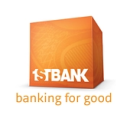Accepting a new job, taking on a major account, scoring a big promotion — any exciting career milestone inevitably carries new responsibilities and unfamiliar challenges.
While these are often the moments that push us forward and teach us new skills, they can also be fertile environments for feelings of self-doubt and unworthiness.
Most people struggle with imposter syndrome at some point in their lives, with women and people of color affected more than others, studies have found. Even while advancing professionally and achieving new goals, many successful people are inwardly dealing with negative self-talk and a perception of being less capable than those around them.
Of course, as the prevalence of this phenomenon suggests, these feelings aren’t typically grounded in reality. In fact, recent research from the Sloan School of Management at the Massachusetts Institute of Technology suggests that people who grapple with workplace imposter thoughts often demonstrate better interpersonal skills than their peers — listening, asking questions and working more effectively with colleagues — without any negative impact on their job performance.
For all its downsides, self-doubt may drive people to focus more on others, resulting in better communication within a team.
This isn’t to say that feelings of inadequacy are ever desirable, but if they arise, a shift in perspective could help defuse their power.
“I choose to see a little imposter syndrome as healthy,” Maia D’Amato, IT manager of infrastructure at FirstBank, tells Built In Colorado. “It means I am challenging myself and continuously growing.”
Seeking out support, advice and community — whether from peers, mentors or the words of other leaders — can also make these feelings more manageable, especially for those accustomed to being the only woman in the room or the only person with a certain background or skillset.
“Everyone has their own ways of coping with those emotions and dealing with negative self-talk, so the more you learn about others’ strategies, the more likely you are to find something that works for you,” says Kemper Ramsey, a product manager at AdAction.
Read on for insights and actionable strategies from seven Colorado tech leaders who have pushed through their fears and pulled others up along the way.
Vivian is a jobs marketplace connecting healthcare professionals with open roles.
Give us some background. How have you experienced imposter syndrome in your career?
I studied biological sciences and pharmacology during my undergraduate studies, followed by a master’s degree in molecular genetics and bioinformatics. My first job was in data science at Capital One. Since 2017, I have been working in the tech industry and currently lead the machine learning team at Vivian Health.
Imposter syndrome used to be a constant companion of mine, particularly in the earlier phases of my career, fueling me to consistently overachieve. Despite receiving top grades and national scholarships, I felt out of place as the only woman in my graduate programming and machine learning classes. Despite receiving quarterly innovation and impact awards in my first job, I felt like I lacked the financial background that others had.
Over the years, I learned that these moments of doubt don’t define me — they are opportunities to grow and prove to myself that I am capable of accomplishing great things. Today, I approach challenges with more confidence than before, knowing that my achievements are a result of my dedication, skills and hard work. As a woman in a male-dominated field, I support and empower other women who may be facing similar challenges through mentorship and advocacy.
Today, I approach challenges with more confidence than before, knowing that my achievements are a result of my dedication, skills and hard work.
How did you deal with your imposter syndrome? Was there a particular situation, quote, idea or person who helped change your perspective?
Sharing my experiences with imposter syndrome with trusted coworkers and friends has been incredibly helpful in several ways. First, it’s been surprising to learn just how many people feel the same way. It’s comforting to know that in a world of imposters, it’s not just me. Second, when I listen to the thoughts expressed by others, I often challenge their imposter-syndrome narratives, not because I’m being dismissive of how they truly feel, but because I genuinely believe that they deserve more credit than they’re giving themselves. Until one day I realized that I was capable of being the voice of reason for myself, just as I was for others.
Lastly, understanding the roots of my imposter syndrome was a key step in addressing it. This personal journey is one that I encourage everyone to take, as it may lead you to the cause of your own doubts.
What advice would you give to other professional women who are dealing with imposter syndrome?
Here’s my tactical advice on managing imposter syndrome:
- Understand the root causes. It’s essential to address the source of the problem instead of just treating the symptoms.
- Make two lists when these thoughts arise. One for evidence supporting the narrative and another for evidence contradicting it. These lists can provide a more realistic representation of your capabilities.
- Practice self-compassion. Treat yourself with the same kindness you would extend to a close coworker or friend.
- Avoid comparing yourself to others. Instead, focus on your progress and celebrate your growth by using your past self from five years ago as a point of comparison.
- Be patient. These thoughts may persist, but challenging them will help to reduce their impact.
- Accept compliments, celebrate small victories and take pride in your accomplishments. Remember them the next time you doubt yourself!
FirstBank is a customer- and community-focused bank serving individuals and businesses across Colorado, Arizona and California.
Give us some background. How have you experienced imposter syndrome in your career?
My entire 27-year career has been in technology, specifically in infrastructure. I started when I was 18 in a technical call center, after which I consulted for a Microsoft/Cisco value-added reseller, and since then have worked in nearly every vertical that doesn't require security clearances.
Currently, I manage the network and telephony infrastructure teams for FirstBank and have been in this role for nearly five years. I am also the chairperson for our women in technology employee resource group. I have mentored many women and young girls in technology throughout my career.
Most recently, I brokered a partnership between our WIT ERG and the Community College of Aurora to mentor technology students, during which I had the pleasure of working with a woman who was trying to change her career from medical billing to cybersecurity. That partnership proved to be so positive that we are continuing the program this year. Even looking back on my career and experience just now, I was hit with a wave of imposter syndrome. The more I think about it, there has never been a role I’ve had that I didn’t feel some sense of imposter syndrome.
How did you deal with your imposter syndrome? Was there a particular situation, quote, idea or person who helped change your perspective?
I would love to tell you that I’m cured, but in reality, it will always be there. However, now I can now identify it quickly and face it head-on.
I experienced imposter syndrome the most earlier in my career when I was consulting. I was always the only woman in the room, and clients were shelling out good money for me to come in and tell them how to design a system or fix an enterprise-wide problem. I could feel their disappointment when I walked into the room and saw their faces drop when they realized they were paying a woman, let alone a young woman, to tell them how to do their jobs. So often, I would feel like I was discounted before I even got the chance to speak.
But here is the thing: I love technology, and there was no way I was going to let these perceptions — real or imagined — get me down. So I would research solutions and designs well ahead of these client meetings. Sometimes I’d even build an entire demo environment to prepare for my first impression with clients. I had to be overly prepared because I knew that the first day at the client’s site would be all about proving to them that I deserved to be there.
My preparations worked. Not only did I feel more confident, but I made excellent first impressions with my knowledge of my clients’ needs or challenges. As a bonus, the confidence I displayed helped my clients trust me faster because I wasn't questioning myself.
There was no way I was going to let these perceptions — real or imagined — get me down.”
What advice would you give to other professional women who are dealing with imposter syndrome?
My advice is to never stop learning. Technology is ever-changing. However, remember that it is impossible to know everything about everything. Be kind to yourself and be comfortable asking questions. I promise you won’t look stupid, even though your brain is telling you that. You are asking so you can learn.
Don’t forget to celebrate your small wins as well as the big ones and learn from — but don’t dwell on — the setbacks.
ezCater is an online marketplace and platform connecting businesses with catering services and food providers.
Give us some background. How have you experienced imposter syndrome in your career?
Despite having successfully led the opening of a technology office in Prague for my former employer and leading multiple software engineering teams at a director level, I still feel imposter syndrome at times. This usually occurs because I am often the only woman in the room and the only person on the engineering team who doesn’t come from a traditional software development coding background.
While my academic background is in business technology strategy, systems and process, and I have gained a strong technical and architectural skill set throughout my career, there are still times when I have doubted my abilities. It’s a tough feeling to shake, especially in the technology field, where there can be a presumption that if you aren’t a developer, then your ideas and suggestions don’t matter as much.
When this happens, there is an inevitable feeling that you are in over your head. However, through some perseverance, I have found that my untraditional background often allows me to provide insights and new solutions, create value and have a positive impact in helping the company meet its goals.
The two pieces of advice I would give are to trust your instincts and to leverage a trusted mentor to help provide a different perspective.”
How did you deal with your imposter syndrome? Was there a particular situation, quote, idea or person who helped change your perspective?
One time, after internally struggling with imposter syndrome for several weeks, I decided that it was time to leverage my network at the company to hear a voice other than the one in my head, which regularly reminded me of my perceived shortcomings.
I reached out to the chief technology officer at ezCater, who I had previously worked with at a former employer, and shared my concerns that I may not be technical enough for the role. She reminded me that defining solutions is not the director’s job; rather, the role requires creating a system where the director’s team can effectively identify solutions and sustainably deliver upon the most valuable business problems. This reframing of how I thought about my position reminded me that I have successfully created the systems she referenced before and that I can do it again.
What advice would you give to other professional women who are dealing with imposter syndrome?
The two pieces of advice I would give are to trust your instincts and to leverage a trusted mentor to help provide a different perspective. If you’re starting at a new company and don’t have a mentor, build relationships with the people who originally interviewed you for the job. They likely provided positive feedback that led to your hiring and, therefore, believe in you.
Melio streamlines B2B payments and makes financial management easier for small businesses.
Give us some background. How have you experienced imposter syndrome in your career?
I have been at Melio for over four years and in a VP role for two of those years. I came in as a manager, and because startups move quickly, I rose faster than I may have at a more mature organization. During my time at Melio, I have had several firsts as a professional. While navigating all of this, I’ve been supported by an amazing leadership team who, by their own admission, did not deeply understand what my team does nor how we do it.
This created a lot of room for us to try new things and push boundaries, but it also meant there was no one I could consult with or learn from on the tactical aspects of what my team was executing.
Building a team headcount from zero to 50 across four intertwined functionalities without anyone to check in or consult with created significant self-doubt. I am a highly intuitive person and am used to following my instincts, and I was doing things that seemed huge and had no intuition about any of them or examples around me. I was in a position where I felt very unsure of some of the strategic decisions I was making, all while my team grew quickly and looked to me for guidance and support.
How did you deal with your imposter syndrome? Was there a particular situation, quote, idea or person who helped change your perspective?
I am a processor, meaning that I don’t always react the way I would like to when I feel cornered. Working with an executive coach has helped me understand this dynamic and how I can create space for myself when I feel imposter syndrome closing in around me.
I am now in a place where I can use some version of “I need to check/think/consider; I will come back with an answer, decision or recommendation” rather than get flustered and shut down. This pause and reset format allows me to take a beat, flip through different considerations, think about the forces and motivations involved and come back with a response I am more confident in.
Almost everyone is dealing with their own version of imposter syndrome, regardless of gender, position or experience.”
What advice would you give to other professional women who are dealing with imposter syndrome?
Almost everyone is dealing with their own version of imposter syndrome, regardless of gender, position or experience. More often than not, what triggers our imposter syndrome is something someone else is doing to manage or deflect their own imposter syndrome, and how we react in those situations can either escalate or defuse the situation.
AdAction provides performance-based marketing solutions to mobile app developers, helping them acquire new users, drive downloads, and optimize their campaigns.
Give us some background. How have you experienced imposter syndrome in your career?
As a product manager, I think it’s easy to feel like an imposter — we don’t have the coding skills of our dev team or all the analytics understanding of business intelligence or the industry knowledge of account managers, but we are expected to walk between all of those disparate areas and get the right people in the room to solve problems. Especially being early in my product career, I constantly feel like there is someone more capable of doing what I am currently doing, making me think, “Why do I get to be here, then?”
Reframing my role from needing to be the expert in everything I worked on — impossible— to being an active learner and engaging people who can support projects with their knowledge has been the biggest contributor to me feeling like I belong in teams and have value.
How did you deal with your imposter syndrome? Was there a particular situation, quote, idea or person who helped change your perspective?
I’m lucky to have had really incredible managers and mentors at AdAction who have helped build my confidence and encouraged my growth as a leader. When I joined the company, I primarily did so because the product team was led by what can only be described as #girlbosses, so when they moved on to new positions, I was terrified to take on their leadership roles.
I had my yearly review shortly after my boss left, and one of the pieces of feedback that stuck with me was, “People want to hear what you have to say. You wouldn’t be in the room if they didn’t.” Having intra-company leaders validate that my opinion is valuable and encourage me to speak up in those higher-level discussions was the largest contributor to my perspective changing. Along with that, there was plenty of internal work that I had to do to build my confidence enough to actually do that speaking up.
Don’t be above being your own hype woman.”
What advice would you give to other professional women who are dealing with imposter syndrome?
You’re not alone. Speaking with anyone in a similar role — especially people more senior than you — will help to validate that even the people that appear the most confident and composed are struggling with a lot of the same feelings of inadequacy and lack of belonging.
I’m also a big believer in building the most well-rounded version of yourself. If you invest all of your self-worth in how you feel about your career, then any failures feel like catastrophic setbacks. Get some hobbies, find stuff you love outside of work and develop self-esteem that is too multifaceted to be destroyed by feeling like you don’t deserve your career, salary or seniority.
Lastly, don’t be above being your own hype woman. No one knows if you are reciting your, “I am capable, I am smart" mantras to yourself before every meeting to build yourself up before logging on. I also find that the more you support your team, the more you are supported in return, and the easier life becomes.
Choozle is a digital advertising software company that offers programmatic advertising solutions for businesses and marketing agencies.
Give us some background. How have you experienced imposter syndrome in your career?
Even with over 20 years of experience in digital advertising and managing multiple successful teams here at Choozle, I have questioned whether I am good enough. I do feel there is additional pressure being the only female leader in the build (engineering and product) department. I feel as if I have to represent not just myself but other women leaders, too. I struggle with trying to live up to my own expectations as well as those I perceive from others.
How did you deal with your imposter syndrome? Was there a particular situation, quote, idea or person who helped change your perspective?
It helps to speak with other women in leadership. Finding common ground with others who are going through similar situations and having similar feelings and frustrations is very helpful in making me not feel isolated. I also have had some great leaders, both men and women, who have given me advice and supported me along the way.
As a particular highlight in my growth as a leader here at Choozle, I also have to point to the build team leadership book club we had. When I first joined the book club, I didn’t think I would have enough time for it and that it would take away from my focus on the team. But I found that making the time to learn and grow as a leader and discuss my thoughts and challenges with other leaders helped me not lose focus on being the best leader I can be for my team. In books, especially those by other women leaders, I was able to see my struggles and my strengths reflected and believe I really am good enough and not an imposter.
Make leadership and growth in your leadership a priority, just as you would for any other aspect of your role.
What advice would you give to other professional women who are dealing with imposter syndrome?
Seek out and talk with other women in leadership roles. Support and learn from each other. Our voices are so very important and needed.
Make leadership and growth in your leadership a priority, just as you would for any other aspect of your role. And make sure to seek out opportunities by women and specifically for women, since we have a unique space in leadership that comes with its own challenges and opportunities.
Lastly, recommend allyship training for the men in leadership in your organization. It takes all of us.
Peaksware develops software to help athletes and musicians practice, train and meet their goals.
Give us some background. How have you experienced imposter syndrome in your career?
I have been incredibly lucky to work at many supportive and inclusive companies, but as a woman in a male-dominated industry and field, I believe that no matter where you work, there will always be a degree of imposter syndrome simply because we’re in the minority.
Communication is the area where I notice gender differences are the most potent. I notice that women often listen, respond and challenge others differently. Being the only woman in most professional situations is powerful in the sense that we get to offer a unique perspective and diverse style of team support, but communicating that perspective comes with the challenge of being alone.
For example, I often find in meetings that I and other women will take a bit more time to think through their thoughts before responding, making us appear quieter. Due to the rapid communication styles we often find ourselves among, we’ll sometimes have to speak with more urgency and interrupt or jump into any break in the discussion to be heard. This challenge requires a degree of confidence and perseverance to be effective because we have to fight to get ourselves into and stay in the conversation.
Whatever stressful or scary situation you are in, challenge yourself to keep your focus on the business problem and off of yourself.”
How did you deal with your imposter syndrome? Was there a particular situation, quote, idea or person who helped change your perspective?
What has helped me be the most effective at combating the feelings of imposter syndrome is being thoughtful about how I communicate. I try to eliminate words that make me look and feel less confident, like “I feel” or “I think.” Instead, I keep my words focused on the facts surrounding the problem and use specific data or evidence to support my thought processes.
Taking the focus off of myself and onto the problem reminds me and others that the conversation is not about the people at the table but about solving the challenge at hand. I find this type of thinking helps me remain calm in stressful situations where I feel alone because the situation feels less personal and therefore less intimidating or tiring when I am challenged.
What advice would you give to other professional women who are dealing with imposter syndrome?
When you’re feeling alone or unheard, remind yourself that regardless of the people in the room, you were hired because you have valuable skills that your company needs to solve problems. Whatever stressful or scary situation you are in, challenge yourself to keep your focus on the business problem and off of yourself.
Never forget that feelings of fear and incompetence are completely normal and healthy, but that none of those feelings are because of you or about you. Your challenges are real, your experience is valid and you will be successful.



















